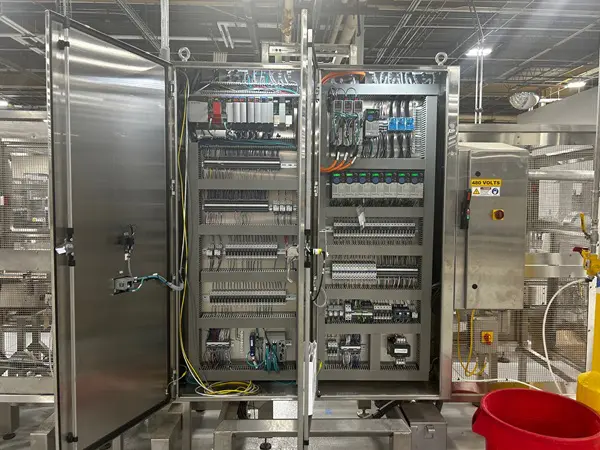Industrial automation engineering is revolutionizing how modern industries operate, from streamlining production lines to improving accuracy, safety, and productivity. As manufacturers and industrial facilities push toward higher efficiency, reduced operational costs, and smarter data-driven decision-making, the demand for advanced automation solutions continues to rise.
At its core, industrial automation engineering integrates mechanical systems, electrical controls, and software technologies to automate repetitive and complex processes. This discipline plays a critical role in transforming traditional manufacturing plants into cutting-edge smart factories that can adapt, learn, and optimize operations in real time.
What Is Industrial Automation Engineering?
Industrial automation engineering is the branch of engineering that designs, develops, and maintains automated systems used in manufacturing, processing, and other industrial environments. These systems often consist of:
-
Programmable Logic Controllers (PLCs)
-
Human-Machine Interfaces (HMIs)
-
Sensors and actuators
-
Robotics and vision systems
-
Supervisory Control and Data Acquisition (SCADA)
-
Industrial Internet of Things (IIoT) devices
Engineers in this field focus on automating physical processes to reduce human intervention, improve product consistency, and collect real-time data for analysis and optimization.
Why Industrial Automation Engineering Matters
The benefits of industrial automation engineering are far-reaching and transformative. Here’s why it’s a cornerstone of modern industry:
1. Increased Efficiency and Productivity
Automated systems can operate 24/7 without fatigue, resulting in higher throughput and reduced cycle times.
2. Enhanced Product Quality
By minimizing human error and improving process control, automation helps ensure consistent product quality and fewer defects.
3. Improved Safety
Automation reduces the need for manual labor in hazardous environments, significantly lowering workplace injuries.
4. Lower Operational Costs
Through optimized energy use, predictive maintenance, and fewer errors, companies can reduce overhead and increase profit margins.
5. Scalability and Flexibility
Smart automation systems can adapt to changing demands, allowing manufacturers to scale operations or reconfigure lines with minimal disruption.
Key Industries Leveraging Automation Engineering
Industrial automation engineering is not limited to one sector. It powers innovation and productivity across many industries:
-
Automotive manufacturing
-
Pharmaceutical and life sciences
-
Food and beverage processing
-
Water and wastewater treatment
-
Oil and gas
-
Aerospace and defense
-
Packaging and logistics
In each of these fields, automation enables faster production cycles, lower defect rates, and greater control over critical operations.
Your Trusted Automation Engineering Partner: Xtreme Automation LLC
When it comes to implementing robust and reliable automation solutions, choosing the right partner is crucial. Xtreme Automation LLC is a leading name in industrial automation engineering, offering end-to-end solutions tailored to your specific industrial needs.
Xtreme Automation LLC specializes in:
-
Custom control panel design and fabrication
-
PLC, HMI, and SCADA programming
-
Process automation and optimization
-
System integration and commissioning
-
Industrial networking and IIoT integration
-
UL508A-certified panel building
Whether you’re upgrading legacy systems or building a new facility from scratch, Xtreme Automation LLC provides turnkey engineering services that enhance efficiency, improve safety, and deliver long-term value.
The Engineering Process: From Design to Execution
A typical industrial automation engineering project involves several key stages:
1. Assessment and Requirements Gathering
Engineers collaborate with your team to understand your processes, goals, and current challenges.
2. System Design and Architecture
Based on requirements, a customized automation solution is designed using CAD, software logic diagrams, and component specifications.
3. Programming and Configuration
PLCs, HMIs, and other system components are programmed for specific sequences, alarms, and data collection.
4. Panel Building and Assembly
Control panels are built in-house, following UL508A and NEC standards for safety and compliance.
5. Installation and Commissioning
On-site integration ensures the system is tested and optimized for full-scale operation.
6. Support and Maintenance
Post-installation support helps keep your system running at peak performance with routine maintenance and upgrades.
Trends in Industrial Automation Engineering
The world of automation is constantly evolving. Forward-thinking engineers are embracing emerging trends like:
-
AI and machine learning for predictive maintenance
-
Digital twins for real-time simulation and planning
-
Cloud-based SCADA systems for remote access and control
-
Cybersecurity enhancements for secure industrial networks
-
Edge computing to reduce latency and enhance local decision-making
Companies that stay ahead of these trends with the help of expert engineering partners gain a competitive advantage in their respective markets.
Conclusion
Industrial automation engineering is the foundation of smart, efficient, and scalable manufacturing. It bridges the gap between mechanical processes and digital intelligence, allowing industries to produce more with less—less energy, less labor, and less downtime.
If you’re looking to harness the full potential of automation in your facility, partnering with Xtreme Automation LLC is a smart investment. Their deep industry experience, innovative approach, and commitment to excellence make them a top choice for businesses seeking reliable and forward-thinking automation engineering solutions.

